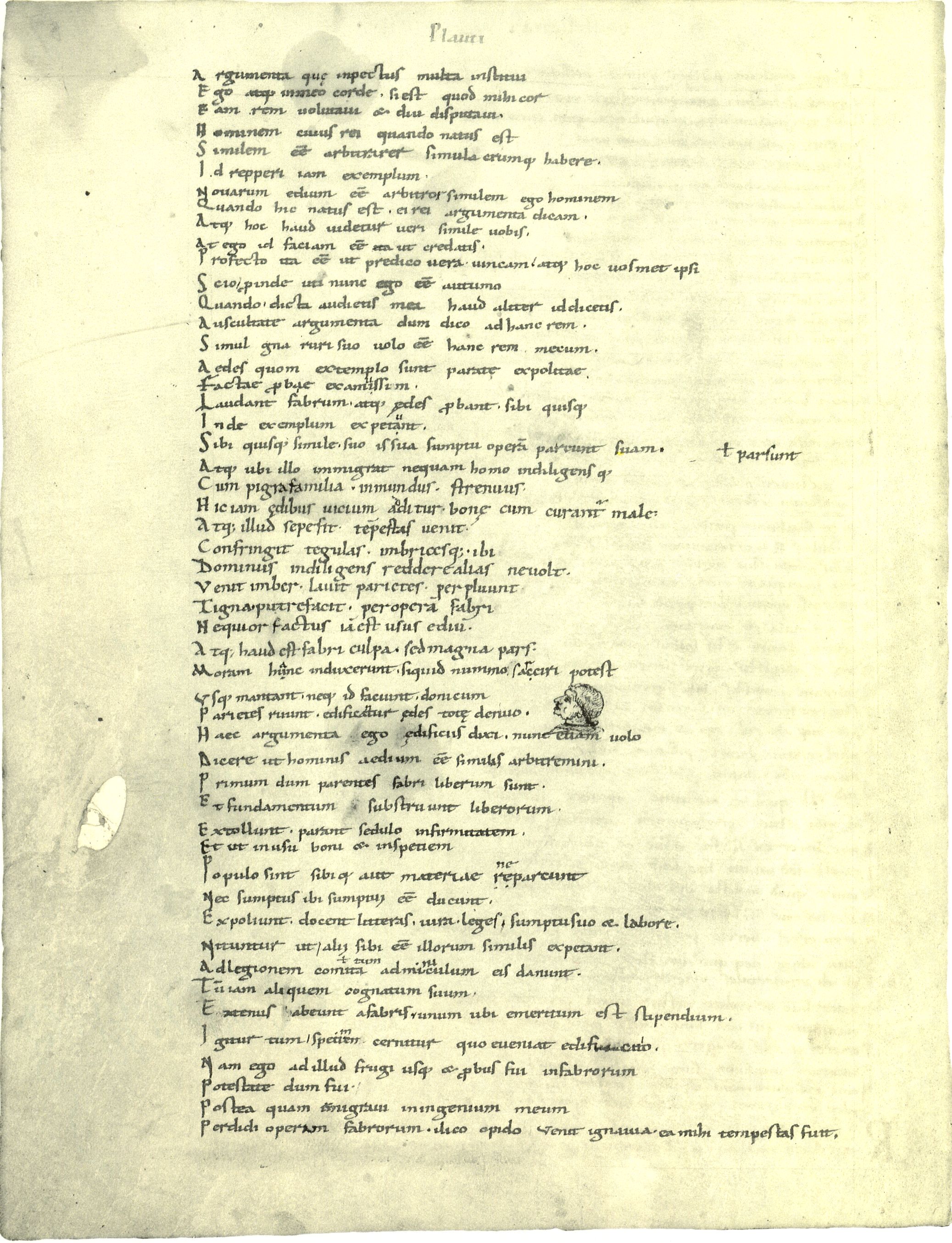-
Roman Author Plautus


Maccius, better known simply as Plautus (actually a nickname meaning ‘flatfoot’), was, between c. 205 and 184 BCE, a writer of comedy plays, specifically the fabulae palliatae, which had a -themed storyline. His plays are the earliest complete surviving works from Latin and they are noted for adding even more outrageous comedy to traditional comic plays. Plautus is also celebrated as a developer of characterisation and a master of verbal acrobatics.

- Titus Maccius Plautus (/ ˈ p l ɔː t ə s /; c. 254 – 184 BC), commonly known as Plautus, was a Roman playwright of the Old Latin period. His comedies are the earliest Latin.
- Roman Drama: The Plays of Plautus and Terence/The Plays of Seneca Amphitryon, and Two Other Plays (The Norton Library, N601) Plautus: The Comedies (Complete Roman Drama in Translation).
Titus Maccius Plautus, better known simply as Plautus (actually a nickname meaning ‘flatfoot’), was, between c. 205 and 184 BCE, a Roman writer of comedy plays, specifically the fabulae palliatae, which had a Greek-themed storyline.
Finally, the plays are a rich and valuable source of information regarding contemporary Roman society. Biographical Details Details of Plautus’ life are sketchy and unreliable; even his name may be simply a collection of nicknames attributed to a particular playwright. Plautus is said to have been born in Sarsina, Umbria.
Ancient sources, now largely discredited as pure invention, tell of his early career in theatre when he worked as a stagehand, his bankruptcy from spurious business ventures, and his time working in a mill to make ends meet. Plautus’ Complete Works Twenty complete plays by Plautus survive along with around 100 lines of Vidularia (The Suitcase) and fragments from several others. This body of work was first attributed to Plautus by the 1st century BCE Roman scholar Varro and the titles are: Early works:. Cistellaria (The Casket Comedy). Miles Gloriosus (The Swaggering Soldier). Stichus (200 BCE).
Pseudolus (191 BCE) Later works:. Bacchides (The Bacchis Sisters). Casina.
Persa (The Persian). Trinummus (Threepence).
Truculentus (The Ferocious Fellow) Date/period unknown. Amphitruo. Asinaria (The Comedy of Asses). Aulularia (The Pot of ). Captivi (The Prisoners). Curculio (The Weevil).
Epidicus. Menaechmi (The Menaechmus Brothers). Mercator (The Businessman). Mostellaria (The Haunted House). Overwatch free download xbox code. Poenulus (The Chappie).
Rudens (The Rope) Influences & Style These works are adaptations of 4th century BCE Greek New Comedy (and perhaps also Middle Comedy) plays with some Latin Comedy additions such as mime and bawdy jokes. The earlier Greek plays already had stock characters and Plautus freely expanded the roles of such staple characters as the cunning slave, the cook, and the parasite, giving them memorable character names into the bargain – for example, Chrysalus (Goldfinger) from Bacchides. Plautus frequently uses wordplay, alliteration and puns to deliver a series of devastating linguistical acrobatics. The plots of Plautus’ plays are also stretched to implausibility so as to heighten their comedy. Confusions of identity and misunderstandings between characters are frequently employed for comedic purposes.
Roman Author Of The Twelve Caesars
Many plays are set in a world which is reversed from the norm, as in the Roman festival where, for a brief time, slaves became masters and vice-versa. Hence, in Plautus’ plays, very often, the cunning slave character comes to the aid of a young lover and both get the better of the old master. In addition, the plays often have an ambiguous morality where lovers are unsuitably matched and such characters as prostitutes are not negatively portrayed. Plautus employs a full range of language from colloquial phrases to technical terms and he frequently uses wordplay, alliteration and puns to deliver a series of devastating linguistical acrobatics. The plays have a great variety of both metre and too, especially in the cantica segments – operatic arias and duets. Plautus also frequently reminds the audience that they are watching a play (metatheatre) to squeeze even more comedy from his scenes, using such tricks as signalling to the audience exactly how the play is progressing and reminding them that the story is set far away in.

